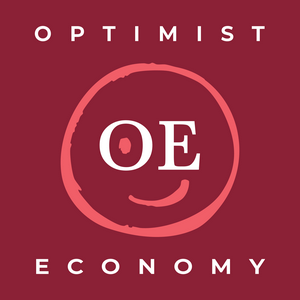Economist Kathryn Anne Edwards and co-host Robin Rauzi talk about the fundamentals of the economy and how to build a better future one problem and solution at a time. Our premise is that the United States has remarkable economy — and yet for tens of millions of Americans it is not performing up to its potential. It could be more open to aspiring workers, less hostile to change, safer for workers, less risky for retirees, and so on.Show notes, member chat and more at optimisteconomy.comAsk questions or share your economic worries with us at:
[email protected]✨ Support the Optimist Economy podcast by becoming a paid member at: https://optimisteconomy.substack.com/subscribe or https://buymeacoffee.com/optimisteconomy ✨
